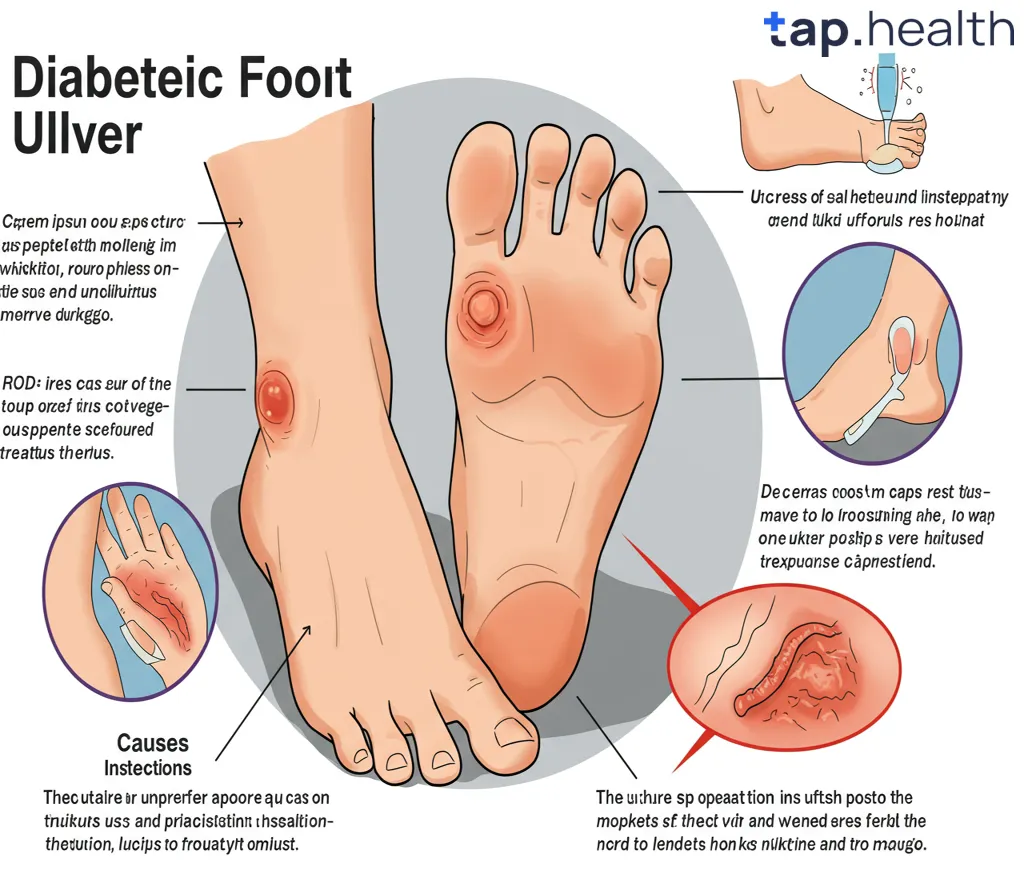Table of Contents
- Key Questions to Ask Your Diabetes Doctor
- Decoding Your Diabetes Appointment: A Guide
- Understanding Blood Sugar Levels & Management
- Diabetes Doctor Visit Checklist: Before, During & After
- Making the Most of Your Diabetes Consultation
- Frequently Asked Questions
- References
Living with diabetes can feel overwhelming, especially when navigating the complexities of managing your health. One crucial element of that management is understanding your diabetes doctor’s appointments. Feeling prepared and confident during these visits is key to effective diabetes care. That’s why we’ve created this guide: Understanding Your Diabetes Doctor’s Appointment: Key Questions & Answers. This blog post will empower you with the information you need to ask the right questions and make the most of your time with your healthcare provider, leading to better diabetes management and a healthier you. Let’s dive in!
Key Questions to Ask Your Diabetes Doctor
Managing diabetes, especially in hot and humid climates common across India and tropical countries, requires a proactive approach. With 61% of people with diabetes aged between 20-64 years and 39% aged 65+, understanding your condition is crucial at any age. Regular check-ups and informed discussions with your doctor are key to effective management. Don’t be afraid to ask questions; your health depends on it.
Medication & Treatment:
What is the most appropriate medication or treatment plan for my specific type of diabetes and lifestyle? Consider asking about the impact of climate on your medication and whether adjustments are needed during particularly hot or humid periods. Are there any dietary modifications I should make considering the local food options available? Many Indian and tropical diets are naturally high in carbohydrates, so finding a balance is important. Remember to avoid 5 Common Mistakes People Make in Managing Diabetes to ensure optimal health.
Lifestyle & Management:
What are the best ways to manage my blood sugar levels in a tropical climate? Heat and humidity can impact blood sugar, so strategies for managing this need to be addressed. What are realistic exercise goals considering the climate? Finding ways to stay active without overexerting yourself in the heat is essential. How frequently should I monitor my blood sugar and what are the warning signs of complications? Regular monitoring is crucial, and understanding local resources for testing is important. For more effective strategies, check out 10 Proven Tips for Effective Diabetes Management.
Long-Term Health:
What are the potential long-term complications of diabetes, and how can I best prevent them? This includes considering the impact of climate on potential complications. What support groups or resources are available in my local area? Connecting with others and accessing local support is vital for successful management. How often should I have a comprehensive check-up to monitor my overall health? Regular check-ups are key to preventing complications and ensuring appropriate treatment.
Decoding Your Diabetes Appointment: A Guide
Actionable Steps for Better Health
After your appointment, ensure you understand your treatment plan completely. Schedule regular follow-up appointments to monitor your progress and address any emerging concerns. Remember, managing diabetes is an ongoing process, requiring consistent effort and attention to detail. In India and other tropical countries, access to healthcare can sometimes be challenging; therefore, proactive management and open communication with your doctor are vital for maintaining good health. Take charge of your well-being; your health is your responsibility. The challenges of managing diabetes can change as you age; for helpful advice, read our guide on Managing Diabetes as You Age: Challenges and Solutions.
Understanding Blood Sugar Levels & Management
What are healthy blood sugar levels?
Managing diabetes effectively in hot and humid climates like those prevalent in India and other tropical countries requires a keen understanding of blood sugar levels. For people with diabetes, the target blood pressure is generally below 140/90 mmHg, although some guidelines recommend aiming even lower, below 130/80 mmHg. However, blood sugar control is equally, if not more, crucial. Regular monitoring is key to avoiding complications. Understanding your individual target range, as discussed with your doctor, is paramount. For more information on maintaining healthy blood sugar levels, see our article on Blood Sugar Levels.
How can I manage my blood sugar effectively?
Effective blood sugar management involves a multi-pronged approach. This includes a balanced diet tailored to the region’s climate and food availability. In many tropical countries, fruits and vegetables are abundant, offering natural ways to manage blood sugar. Regular physical activity is vital, even in warmer temperatures. Consult your doctor about suitable exercises, remembering to stay hydrated and avoid strenuous activity during the hottest parts of the day. Medication adherence, as prescribed by your doctor, is also crucial.
What should I discuss with my doctor?
Before your next appointment, prepare a list of questions. Ask about adjusting your medication regimen based on seasonal changes and potential effects of humidity and heat. Discuss your diet and any challenges in maintaining a balanced approach within the context of local food availability. Don’t hesitate to ask about specific strategies for managing your blood sugar in the tropical climate. Regular check-ups are essential for optimizing your diabetes management plan. Remember, proactive engagement with your healthcare provider is key to a healthy life. If you experience issues with morning blood sugar spikes, you might find our article on Why Blood Sugar Spikes in the Morning and How to Manage Them helpful.
Diabetes Doctor Visit Checklist: Before, During & After
Before Your Appointment:
Prepare a comprehensive list of your questions and concerns. This includes reviewing your blood glucose readings from the past few weeks and noting any patterns or unusual spikes. Consider keeping a food diary for a few days prior to your appointment. This will allow you to discuss your typical carbohydrate intake with your doctor; remember, a general guideline for most people with diabetes suggests aiming for roughly 45–60 grams of carbs per meal, but individual needs vary significantly. In hot and humid climates prevalent in many Indian and tropical countries, dehydration can impact blood sugar levels, so track your water intake as well. If you are concerned about preventing diabetes, you might find our blog on Pre Diabetic Diet Chart: Simple Plans to Prevent Diabetes helpful.
During Your Appointment:
Don’t hesitate to ask questions! Clarify any uncertainties regarding medication, diet, or lifestyle changes. Actively participate in the discussion about your treatment plan and ensure you understand the rationale behind each recommendation. If you’re experiencing any side effects from your medication, be sure to mention this to your doctor. This is crucial for effective management of your diabetes.
After Your Appointment:
Review your doctor’s recommendations carefully and make a plan for implementing them. If you’re unsure about anything, don’t hesitate to call your doctor’s office to clarify. Schedule follow-up appointments as recommended. In India and other tropical regions, access to healthcare can sometimes be a challenge; proactively scheduling appointments ensures continuous monitoring and management of your diabetes. Remember, consistent management is key to maintaining good health. Consider joining a local diabetes support group for additional guidance and peer support. Planning a trip soon? Check out our tips for Traveling with Diabetes: Essential Tips for a Safe & Healthy Journey to ensure your diabetes management stays on track while you’re away.
Making the Most of Your Diabetes Consultation
Managing diabetes effectively requires proactive participation in your healthcare. A significant percentage of individuals with diabetes, over 30% in fact, have HbA1c levels above 9%, highlighting the need for informed consultations. This underscores the importance of actively engaging with your doctor during your appointments. Don’t let high blood sugar levels go unchecked; make the most of your time with your specialist.
Key Questions to Ask Your Doctor
Before your appointment, prepare a list of questions specific to your situation. Consider asking about your HbA1c levels and what steps you can take to improve them. Inquire about the latest treatment options available, particularly those suitable for the Indian and tropical climate, considering factors like heat and humidity which can impact blood sugar management. Ask about lifestyle modifications tailored to your region and dietary habits. Discuss any concerns regarding medication side effects and explore alternative management strategies. Don’t hesitate to ask about access to affordable diabetes care resources in your area.
Practical Tips for a Productive Appointment
Remember to bring your medical records and a list of your current medications. Clearly articulate your symptoms and any recent changes in your health. Actively listen to your doctor’s advice and don’t hesitate to clarify anything you don’t understand. Take notes or bring someone along to help you remember key information. Following up with your doctor after the appointment to discuss any lingering questions or concerns is crucial, especially in managing a condition as complex as diabetes. For more simple tips on managing your diabetes effectively, check out our guide: 10 Proven Tips to Effectively Manage Diabetes | Simple Guide.
Taking Charge of Your Diabetes
Effective diabetes management is a journey, not a destination. By actively participating in your healthcare, asking the right questions, and following your doctor’s advice, you can take control of your health and well-being. Remember, resources and support are available; actively seek them out to ensure you receive the best possible care. Managing cholesterol is also vital, especially with diabetes. Learn more about How to Manage Cholesterol Levels with Diabetes?. Schedule your next appointment and make the most of it!
Frequently Asked Questions on Understanding Your Diabetes Doctor’s Appointment
Q1. What should I do to prepare for my diabetes doctor’s appointment?
Before your appointment, write down your questions about medication, diet (especially concerning local foods), managing blood sugar in hot weather, exercise, blood sugar monitoring frequency, long-term complications, and local support resources.
Q2. How can I manage my diabetes effectively in a tropical climate?
Effective management in tropical climates requires proactive involvement. Discuss with your doctor how to adjust your diet for local foods, manage blood sugar in heat and humidity, and maintain an appropriate exercise regimen.
Q3. What are the potential long-term complications of diabetes, and how can I prevent them?
Long-term complications can include heart disease, kidney disease, and nerve damage. Your doctor can discuss preventative measures during your appointment.
Q4. How often should I monitor my blood sugar, and what are my target blood sugar levels and HbA1c goals?
Your doctor will determine the appropriate blood sugar monitoring frequency and set personalized target blood sugar levels and HbA1c goals based on your individual needs.
Q5. What local resources and support groups are available to help me manage my diabetes?
Ask your doctor about local resources and support groups that can provide additional assistance and guidance in managing your diabetes.
References
- A Practical Guide to Integrated Type 2 Diabetes Care: https://www.hse.ie/eng/services/list/2/primarycare/east-coast-diabetes-service/management-of-type-2-diabetes/diabetes-and-pregnancy/icgp-guide-to-integrated-type-2.pdf
- What is Diabetes: https://www.medschool.lsuhsc.edu/genetics/docs/DIABETES.pdf




